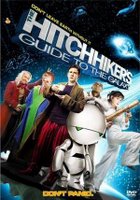 Wow so complicated to add pictures now
Wow so complicated to add pictures now
Friday, July 23, 2010
Friday, March 17, 2006
Tuesday, March 14, 2006
The Malaysian Geniuses (?)
Sunday, March 12, 2006
The Special Branch
Finally something to be proud of, eh?The old Special Branch of British Malaya was so good that it could penetrate the Malayan Communist Party (MCP). One of the Chinese Special Branch officers actually became a member of the CT (Communist Terrorist -- what the British called the guerrillas), climbed up the leadership ladder, and was later sent by the MCP to infiltrate the Special Branch (it is said that the number two in the MCP was also Special Branch who was killed when Chin Peng found out about it). What the MCP did not know is that the Chinese CT was actually a Special Branch officer who had infiltrated their ranks and not the other way around. Invariably, he successfully ‘infiltrated’ the Special Branch (because he was already Special Branch) and sent back ‘secrets’ he ‘stole’ from the Special Branch to the MCP. Imagine how much misinformation and disinformation he fed the MCP. Ever wonder why Chin Peng could never make a move without the Special Branch always being one step ahead of him? Today, we have Special Branch officers serving as branch chairmen of political parties, not only in the opposition but in the ruling party as well (even some Supreme Council members are suspected of being Special Branch officers; though I can’t mention their names here). The EPF counter clerk you meet to settle your EPF matters could be a Special Branch officer. The Telecoms technician who comes to your house to repair your phone line could be a Special Branch officer. The student in the front row of your lecture could be a Special Branch officer. Your office boy could be a Special Branch officer. Your chauffer could be a Special Branch officer. The list of possibilities is endless.
Thursday, March 09, 2006
The Superlative God
Thursday, March 02, 2006
The Just World Effect
Tuesday, February 28, 2006
The February Films (review)
 travels the galaxy with his partner, the charismatic ex-mobster Spike Spiegal. Early in the series they pick up Faye Valentine, a selfish and cynical woman who regularly makes off with their earnings; Ed, a young hacker who has a very odd take on life; and Ein, a corgi with human-like intelligence.
Unlike other series there is barely a "main" plotline. The 26 "sessions" of Cowboy Bebop revolve around the individual agendas and histories of the crew. It's the deep character development that makes this show memorable, coupled with the enchanting film noir style.
travels the galaxy with his partner, the charismatic ex-mobster Spike Spiegal. Early in the series they pick up Faye Valentine, a selfish and cynical woman who regularly makes off with their earnings; Ed, a young hacker who has a very odd take on life; and Ein, a corgi with human-like intelligence.
Unlike other series there is barely a "main" plotline. The 26 "sessions" of Cowboy Bebop revolve around the individual agendas and histories of the crew. It's the deep character development that makes this show memorable, coupled with the enchanting film noir style.
 House MD is doubtless one of the most engaging drama series ever shown on TV. Dr. Gregory House suffers chronic pain due to a misdiagnosed thigh infarction that also left him a cripple - and very miserable. He's eccentric, cynical, misanthropic; but also brilliant. Modelled after the fictional detective Sherlock Holmes, House and his team of diagnosticians take on difficult cases which have stumped everyone else.
House's take on life is what keeps you coming back every episode. The show may be formulaic, and House always abusive, but you can never manage to predict what he says.
House MD is doubtless one of the most engaging drama series ever shown on TV. Dr. Gregory House suffers chronic pain due to a misdiagnosed thigh infarction that also left him a cripple - and very miserable. He's eccentric, cynical, misanthropic; but also brilliant. Modelled after the fictional detective Sherlock Holmes, House and his team of diagnosticians take on difficult cases which have stumped everyone else.
House's take on life is what keeps you coming back every episode. The show may be formulaic, and House always abusive, but you can never manage to predict what he says.
House: You have a parasite. Woman: Can you do anything about it? House: Only for about a month or so. After that it becomes illegal to remove — except in a couple of states. Woman: Illegal? House: Don't worry. Many women learn to embrace this parasite.Oh yes, he does have a heart of gold beneath all that, but he's not going to let you know. The show itself addresses many ethical issues (all medical dramas do), particularly on the tendency of people to lie - "Everybody lies" being House's catchphrase. But it does bring out the shades of gray in many issues and makes you think. Hitchhiker's Guide to the Galaxy could have been a great movie. It's based on a series
 of sci-fi comedy books of the same name. It starts off with dolphins heralding the end of the world with the song So Long, and Thanks for All the Fish! Then we have Arthur Dent, a geeky Englishman who finds out his friend Ford Prefect is actually an alien. Ford saves him from sharing the fate of Earth, which is vapourized by the Vogons to make way for a hyperspace interstate. "There's no point acting all surprised about it, the plans and demolition orders have been on display at your local planning office in Alpha Centauri for 50 Earth years."
Ford is also in the process of writing a handbook of the galaxy, hilarious excerpts of which are occasionally read out. They meet Trillian, the only other surviving Earthling; Zaphod, part-time President of the Galaxy; and Marvin, a manically-depressed robot.
It turns out that long ago the ultimate computer, Deep Thought, was built to answer the the meaning of life, the universe and everything. When the Ultimate Answer was returned: "42", it was realised that its creators had neglected to define the Ultimate Question.
Oh it could have been so much fun. But in a dastardly demonstration of Hollywoodism we are treated instead to Arthur's infatuation with Trillian and the story devolves into a cliched romance. Although admittedly, being an endangered species might alter one's priorities in life...
of sci-fi comedy books of the same name. It starts off with dolphins heralding the end of the world with the song So Long, and Thanks for All the Fish! Then we have Arthur Dent, a geeky Englishman who finds out his friend Ford Prefect is actually an alien. Ford saves him from sharing the fate of Earth, which is vapourized by the Vogons to make way for a hyperspace interstate. "There's no point acting all surprised about it, the plans and demolition orders have been on display at your local planning office in Alpha Centauri for 50 Earth years."
Ford is also in the process of writing a handbook of the galaxy, hilarious excerpts of which are occasionally read out. They meet Trillian, the only other surviving Earthling; Zaphod, part-time President of the Galaxy; and Marvin, a manically-depressed robot.
It turns out that long ago the ultimate computer, Deep Thought, was built to answer the the meaning of life, the universe and everything. When the Ultimate Answer was returned: "42", it was realised that its creators had neglected to define the Ultimate Question.
Oh it could have been so much fun. But in a dastardly demonstration of Hollywoodism we are treated instead to Arthur's infatuation with Trillian and the story devolves into a cliched romance. Although admittedly, being an endangered species might alter one's priorities in life...
